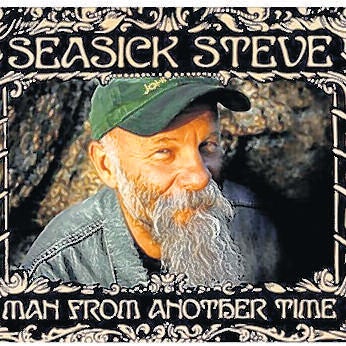Album: Seasick Steve, Man from Another Time (Atlantic)

Your support helps us to tell the story
From reproductive rights to climate change to Big Tech, The Independent is on the ground when the story is developing. Whether it's investigating the financials of Elon Musk's pro-Trump PAC or producing our latest documentary, 'The A Word', which shines a light on the American women fighting for reproductive rights, we know how important it is to parse out the facts from the messaging.
At such a critical moment in US history, we need reporters on the ground. Your donation allows us to keep sending journalists to speak to both sides of the story.
The Independent is trusted by Americans across the entire political spectrum. And unlike many other quality news outlets, we choose not to lock Americans out of our reporting and analysis with paywalls. We believe quality journalism should be available to everyone, paid for by those who can afford it.
Your support makes all the difference.Recorded live on old-style analogue equipment, Man from Another Time is typically enjoyable, though not quite as potent as the quarter-million-selling I Started Out with Nothing and I've Still Got Most of It Left – despite Steve's lo-fi ringing of the changes, with his trusty "three-string trance wonder" guitar set aside occasionally in favour of slide licks played on a homemade cigar-box guitar ("Happy"), and more primitive still, the single-string device whose construction is explained and demonstrated in "Diddley Bo".
He may no longer ride the rails, but Steve's hobo experiences still drive his muse, with recollections of time spent sleeping rough, picking apples as a migrant worker ("Wenatchee") and spending time in Spokane jail ("Never Go West"). Elsewhere, "Just Because I Can" and "Big Green and Yeller" respectively find a nostalgic Steve hopping a freight train for old time's sake, and devising a plan to buy himself a tractor and caravan and "drive down the highway blockin' traffic every chance I can". He has two basic modes: the itchy boogie groove most effectively employed on the prison lament "That's All", evoking the restless frustration of pacing a tiny cell; and the more low-key style of "The Banjo Song", a sympathetic reflection on the ostracism of ageing drifters, where the dry-gulch plunk of his banjo perfectly matches the hoarse rasp of his voice.
Download this That's All, Seasick Boogie, I'm So Lonesome I Could Cry
Join our commenting forum
Join thought-provoking conversations, follow other Independent readers and see their replies
Comments